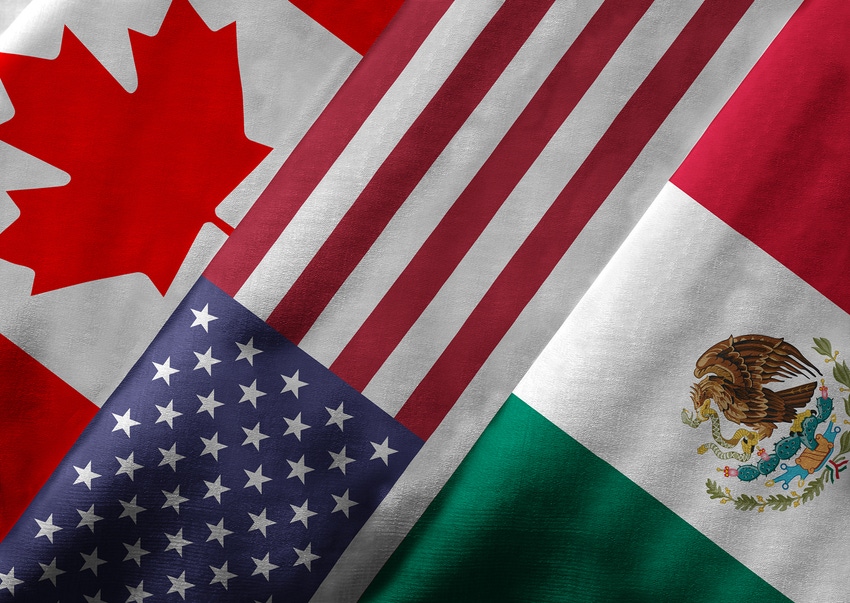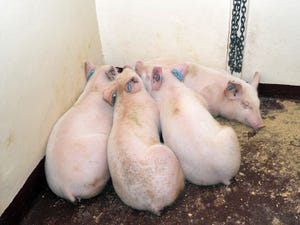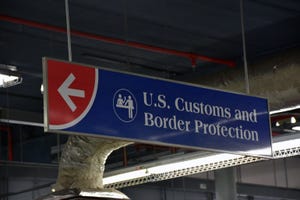Word from the North as NAFTA talks set to begin
As a prelude to the renegotiation talks set to begin in Washington, Canada’s minister of foreign affairs outlines the core objectives her country will bring to the table.
August 14, 2017

Compiled by Kevin Schulz
Renegotiation talks concerning the North American Free Trade Agreement are set to begin in Washington, D.C., on Wednesday, and Canadian and Mexican officials will join their counterparts from the United States to rehash the trade deal that has been in place since 1994.
As a lead-in to the talks, Canada’s Minister of Foreign Affairs Chrystia Freeland outlined in a speech her country’s wishes for the future of NAFTA, saying “trade is about people. It’s about creating the best possible conditions for growth, for jobs, for prosperity for individuals and working families. This is why we modernize NAFTA. This is why we are seized of this opportunity to make what is already a good agreement, even better.”
Just as the U.S. negotiators will be seeking the best for American interests, so will the Canadian and Mexican officials. Freeland extols NAFTA’s benefits to the three countries’ economies. “The North American Free Trade area is now the biggest economic zone in the world. Canada, the United States and Mexico together account for a quarter of the world’s GDP, with 7% of its population. Since 1994, trade among the NAFTA partners has roughly tripled, making this a $19 trillion regional market, with 470 million consumers. Canada’s economy is 2.5% larger every year than it otherwise would be, thanks to NAFTA. It is as if Canada has been receiving a $20 billion check each year since NAFTA was ratified.”
Though NAFTA appears to be working, no one argues that it cannot be improved. The global and North American economies have changed greatly in the 23 years of NAFTA’s life, thus the trade deal needs modernization to be most beneficial for each participating country and the residents of each.
In addition to modernizing NAFTA, Freeland laid out Canada’s core objectives: Make NAFTA more progressive, starting with strong labor and environment safeguards among others; make life easier for business people on both sides of the border by cutting red tape and harmonizing regulations; seek a freer market for government procurement; make the movement of professionals, which is increasingly critical to companies’ ability to innovate across blended supply chains, easier; and uphold and preserve the elements in NAFTA that Canadians deem key to our national interest — including a process to ensure anti-dumping and countervailing duties are only applied fairly when truly warranted.
According to the Pew Research poll, 74% of Canadians surveyed agree with Freeland in saying that NAFTA “has been an extraordinary success story.”
While the “FT” in the agreement’s name stands for “Free Trade”, which Freeland says her countrymen broadly support, she says they also implore that it stands for “fair trade.” “Their enthusiasm wavers when trade agreements put our workers at an unfair disadvantage because of the high standards that we rightly demand. Instead, we must pursue progressive trade agreements that are win-win, helping workers both at home and abroad to enjoy higher wages and better conditions.”
Freeland says she is optimistic about NAFTA’s future as a result of the upcoming talks because “Canada-U.S. economic relationship is the most significant, the most mutually beneficial and the most effective anywhere in the world. We know that. And, particularly after six months of constant reminders from their friends in the North, our American neighbors now know it, too.”
As with any negotiations, each country will no doubt protect what they see as rightfully theirs. But also with negotiations, each country will need to bend on their nationalist stance. “We will come to the table with goodwill, and Canada’s characteristic ability and willingness to seek compromise and find win-win solutions. But we are committed to a good deal, not just any deal. That will be our bottom line,” Freeland says.
A transcript of Freeland’s address can be read here in its entirety.
You May Also Like



